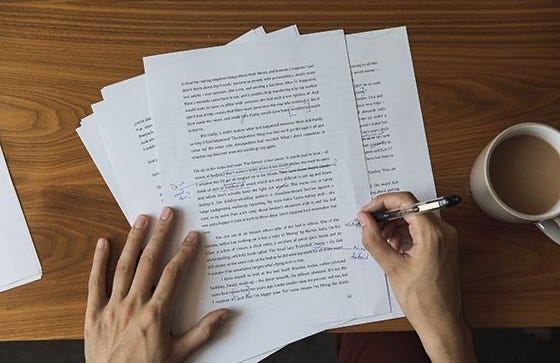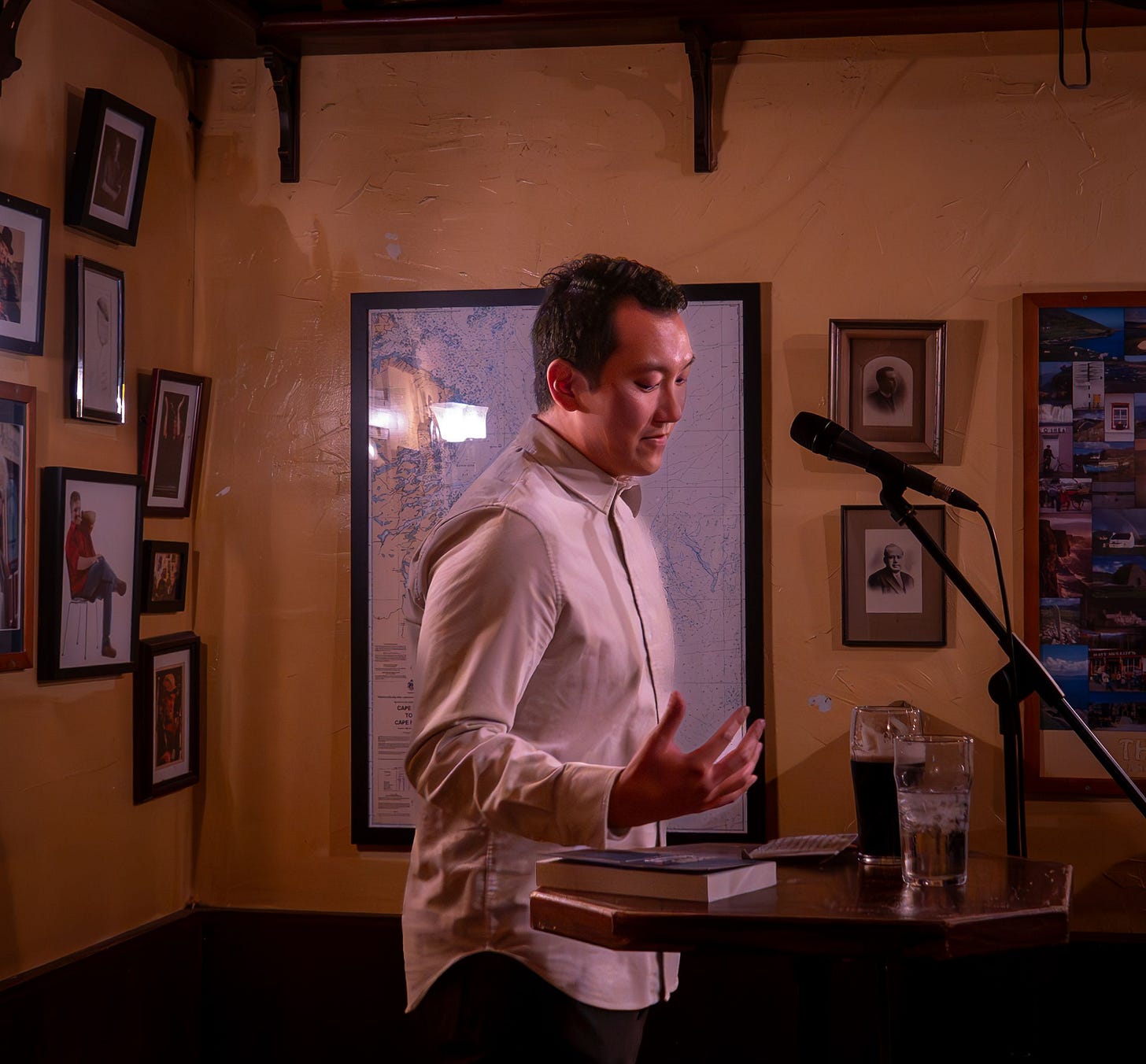But first, Happy Substack Anniversary!
Just before starting, I thought I should note my third anniversary on Substack. Yes, my very first post appeared on April 13, 2022, not long after I retired from my day job to write full-time. And here we are, three years and 108 posts later. Thank you for subscribing and all your supportive comments. I’ll keep writing as long as you keep reading.
Now back to our regularly scheduled programming…
In praise of editors
A post extolling the virtues and singing the praises of editors is long overdue in this humble space. With ten novels under my belt and the eleventh written, I have learned firsthand just how important my editors have been to any success my books have earned.
This is hardly an earth-shattering epiphany. In fact, it’s what a friend of mine once called “a blinding glimpse of the obvious,” or a BGO for short. But when you’ve worked through a manuscript—or ten—with a great editor, as all of mine have been, you emerge on the other side with a very clear understanding of, and appreciation for, their critical role in the publishing process.
When writing my debut novel twenty years ago, without the aid of an editor—at least initially—it quickly became clear that I was certainly not the best editor of my own writing. Which stands to reason as writers are very seldom effective editors of our own work. It reminds me of that brilliant observation made by the famous Canadian physician, Sir William Osler, more than a century ago: “The doctor who treats himself has a fool for a patient.”
If you take nothing else away from these musings, remember this: Writers can never read their own writing for the first time.
Let me present that important line in a larger font, because it deserves additional prominence.
Writers can never read their own writing for the first time.

For writers, this fact is important when considering the critical role of the editor. We writers are the only ones on the planet who cannot read our own work for the first time, the way a reader, or an editor can. We’ve come up with the idea, developed the story line, created the characters, and written the manuscript. So we bring lots of baggage, and a conflict of interest of sorts, to the editing table. Our eyes on our own story are not fresh eyes—often they are tired and bloodshot, and they already know the story.
Similarly, I guess songwriters never have the experience of listening to their own songs for the first time.
Great editors often read their writers’ manuscripts first as a reader, truly experiencing the sentences for the first time. Then, after that initial “readerly” review of the manuscript, they then don their editor’s cap and dig into how the writer has told their story. But the editor’s initial read is important.
Not to belabour the point, they are reading the story for the first time in a way the writer never can.
Okay, there’s something else I hope you’ll take away from this post, particularly if you’re a writer. A good editor invariably makes a writer’s work better.
And once more to make sure:
A good editor invariably makes a writer’s work better.
Editors improve the story and the reading experience
Because editors do in fact have the chance to read their writers’ manuscripts through fresh eyes—for the first time, they see things the writers do not—and often cannot—see. In a way, that is the whole point. The writer knows what’s going to happen three chapters later, or when the plot takes a turn, or at the end of the story, and therefore cannot always grasp how the unknowing reader is feeling. Before the book is published, the editor, in a way, becomes a stand-in for the eventual audience of readers. They help protect the readers’ interests in working with the writer to shape the manuscript to optimize the story and maximize its impact—a critical role.
My three editors
Without even a shadow of a doubt, each of the three different editors I’ve had the pleasure of working with across ten novels, has made my manuscripts better. And in case it’s of interest, I would say that I accept about 99 per cent of my editors’ minor and major suggestions. No, that’s not an exaggeration. I could count on one hand the number of my editors’ recommendations that I haven’t accepted across 10 novels and nearly a million words in print. And I am, and always will be, grateful for the care, insight, and expertise my three editors committed to each sentence. All three have made my novels better.
Here’s a brief introduction to each of them.
Doug Gibson
I’ve written about Doug, my first editor at McClelland & Stewart/Penguin Random House Canada, in an earlier post, here. Suffice it to say, I am extraordinarily fortunate to have had Doug as my editor for my first six novels, and as my friend, still. He is among Canada’s legendary editors having edited some of our nation’s literary titans including Robertson Davies, Alice Munro, W. O. Mitchell, Hugh MacLennan, Morley Callaghan, and Mavis Gallant, among so many others, including three Canadian Prime Ministers.

After what I still call my Leacock Shock back in 2008, Doug acquired The Best Laid Plans for M&S, and became my editor. He was a gentle but thorough editor, marking up my manuscript in pencil, in his small, occasionally indecipherable cursive. When I suggest that he was “gentle” in his guidance, the most aggressive editorial comment he ever gave me while editing The Best Laid Plans, was in the midst of a detail-ridden paragraph on the esoteric mechanical intricacies of the hovercraft that played an important role in the story. Doug’s pencilled note to me read: “You’re taxing the readers attention here.” Of course he was right, and I deleted the paragraph immediately.
Working with Doug was a pleasure and a literary/editorial masterclass. I will always consider Doug to be my editor emeritus.
Bhavna Chauhan
The wonderful Bhavna Chauhan supported Doug in editing four of my earlier books, but was the lead editor on my seventh and eighth novels, Albatross and Operation Angus. Like Doug, she was very thorough but kind when imparting her editorial wisdom. I learned a great deal from her, particularly the need for me to be more diligent in showing how my first-person narrators were feeling in various situations and scenes over the course of the novels.
I hope she doesn’t mind, but I thought I’d share a single page of her editorial notes from early on in my novel, Albatross. Very, very helpful.
Joe Lee
Joe became my editor on my ninth novel, A New Season, and we’ve just finished editing my tenth, The Marionette. Joe continues my editorial good fortune in that in addition to being a talented and insightful editor, he’s also a really nice guy. You so often read and hear the clichéd stories of angry and all-too-direct editors who tear manuscripts—and their authors—to shreds. But I’ve never had, or even met, any editors even remotely like that. I think they’re more myth than fact. More good fortune. Joe also brings an enthusiasm that is infectious and always keeps me going.
As with Doug and Bhavna, I’ve learned a great deal from Joe, including, as noted at the outset, insights that have come from Joe after reading my manuscript for the very first time—seeing the story through the new reader’s eyes. He’s also very good at timing and pacing. His suggestions around where to put the chapter breaks in The Marionette, were very helpful. Here’s just one small example of how he delivers his editorial advice. It’s a page from the manuscript for A New Season.
Wrapping up…
In this post, I guess I’ve tried to lift the lid on the black box that the editor-writer relationship often seems to be for readers. I feel very lucky to have had such fine editors. My novels simply wouldn’t be my novels without them.
Here’s hoping you’ll subscribe and join the ever-growing number of readers and writers who have climbed aboard this humble train. It’s free and easy to subscribe and you won’t miss any future posts. Many thanks. See you in two weeks.









so, so, so true... and s/he would take out all 3 of those modifiers. When I have editors, I love them. When it's just me, me loves me... with the blind eyes of a mother.
I’m ready. 😄